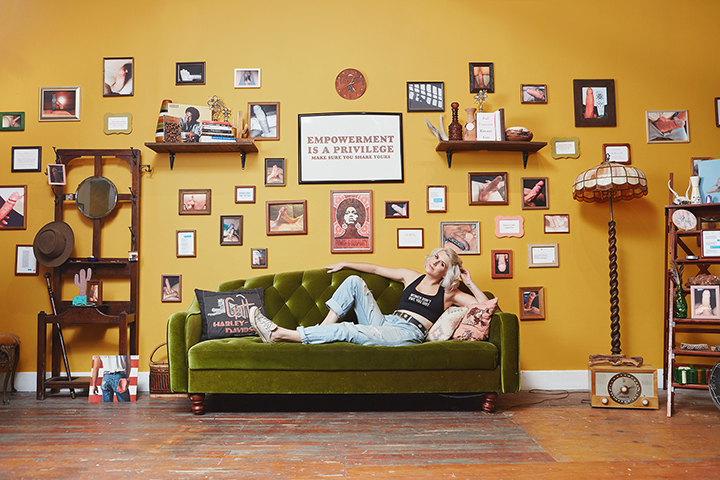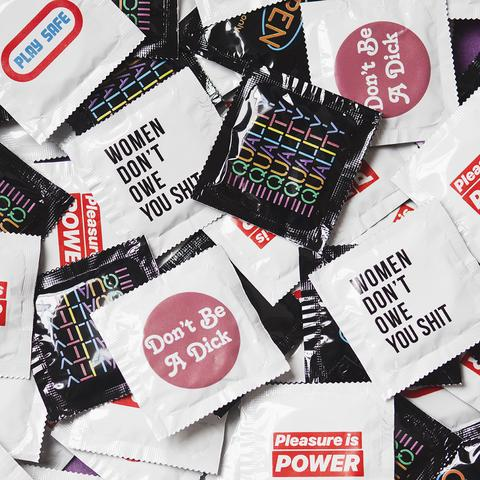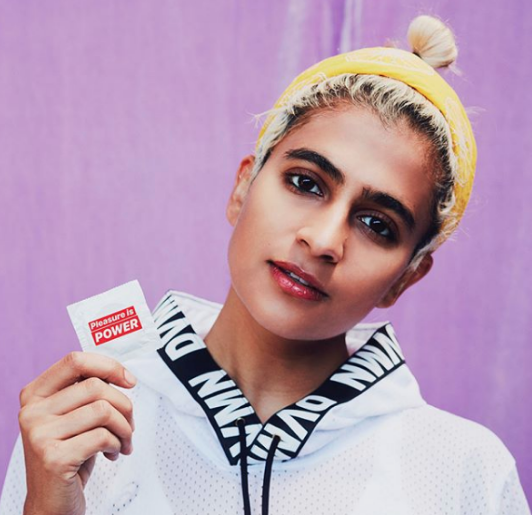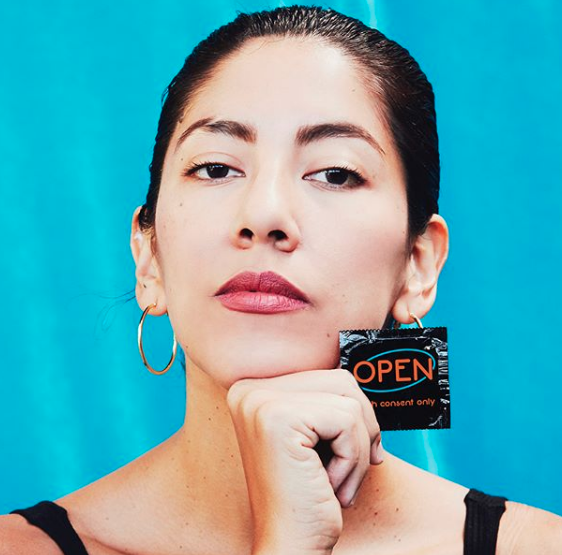Whitney Bell, a feminist polymath with a distinguished presence on social media, uses her platform to spread conscious messaging that concerns gender equality, consent, and the de-stigmatization of family planning. You may remember Whitney from a number of her widely-publicized events; from challenging the defunding of Planned Parenthood by live-streaming her IUD insertion to participating in an empowering photo series funded by the Amber Rose SlutWalk, Bell is an undaunted voice for social justice.
More recently, Bell made waves by hosting a gallery event that highlights the harassment of uninvited nude photography. “I Didn’t Ask for This: A Lifetime of Dick Pics” features approximately two-hundred framed photographs of dick pics that Bell and other women have received. “I wanted to show how invasive and pervasive sexual harassment is,” Bell says in a Bustle interview, “and how it affects every part of a woman’s life.”
Modelled after her own apartment, the gallery space uses an eclectic collection of personal items that are juxtaposed with jarring photos of genitalia. This contrast confronts the regularity of sexting harassment. Even when women are alone at home, they are liable to receive a torrent of unsolicited sexts via online dating apps.
While sexting can potentially be a normal, healthy part of burgeoning relationships, it’s still necessary to receive consent before sending explicit images. Although women are equally capable of sending an unwanted sext, statistics indicate that the trend is heavily skewed toward men. Research from McAfee, a software security firm, found that “61 percent of men partake in sexting and suggestive photo taking, while 48 percent of women do.”
What can account for such a discrepancy?
Dr. David Ley theorizes in Psychology Today that “in an anonymous environment, people, and especially men, are more likely to engage in sexualized behaviors,” also noting that “men notoriously misperceive women’s sexual interest in them and project their own sexual interests and desires onto women.”
Frontiers in Psychology research by Evita March and Danielle Wagstaff correlates the likelihood of sending an unsolicited explicit image to “dark personality traits” such as narcissism, Machiavellianism, psychopathy, and sadism: “the positive association between dark traits of personality and sexually exploitative behavior could extend to sending unsolicited explicit images, which have previously been defined as a form of online sexual harassment.” Interestingly, the study also notes that sending explicit images “may act as a signal of one’s willingness to engage in risky behaviors,” such as not using protection, which is corroborated by research from The Journal of Adolescent Health.
Bell emphasizes in a Vice interview that her gallery isn’t about “dick-hating or man-hating,” it’s about harassment. “All of these dicks are unsolicited,” Bell says, “they didn’t come from requests.” Underscoring the issue of unsolicited dick pics is the suppression of female sexuality and a fundamental misunderstanding of consent, which Bell hopes to alleviate through educational programming at future gallery events.
A New Promotional Campaign
Last March, Bell took on a new project. Utilizing the services of Say It With A Condom, Bell created a clever campaign that uses custom condoms to celebrate the virtues of consent and sexual positivity. The condoms are designed with the intention to make people consider feminism, LGBT equality, and the risks of unprotected sex.
The condoms, which include slogans such as “pleasure is power,” “open with consent only,” “don’t be a dick,” “respect women,” and “women don’t owe you shit,” are an easy and fun way to initiate a conversation about important feminist issues.
With a cute retro design, Bell’s condoms also serve to de-stigmatize female sexuality: “women were embarrassed to carry condoms,” says Bell, “but I’m going in the other direction by demanding that there be no shame.” In addition to spreading an important message, 100% of the proceeds from Bell’s condoms are donated to amfAR (The Foundation for AIDS Research).
The condoms are sold on Bell’s unique online clothing store.
Getting The Word Out – Custom Designed Condoms
With the help of a “dream team of sexologists, activists, and influencers,” Bell organized a professional photoshoot to promote her charity campaign. Photographer Brandon Barnhart shot the series.
Kiran Gandhi, an activist and musician who toured as a drummer with M.I.A
GabiFresh, a businesswoman and blogger who runs a popular online store
Stephanie Beatriz, an actress famous for playing Detective Rosa Diaz on Brooklyn Nine-Nine
Jazzmyne Jay, a producer at BuzzFeed
Curly Velasquez, a writer for BuzzFeed
Dewanda Wise, an actress who plays Nola Darling in Spike Lee’s Netflix series She’s Gotta Have It
Gaby Dunn, the New York Times best-selling author of I Hate Everyone But You
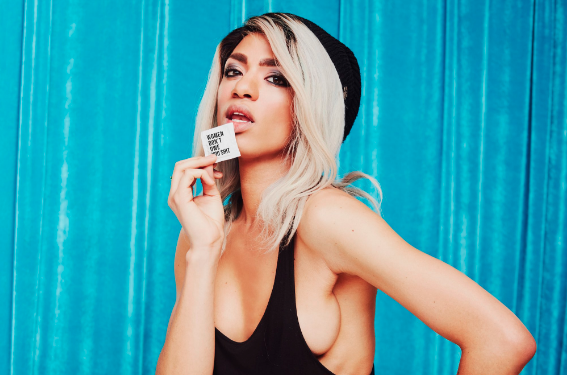
Arisce Wanzer, a transgender supermodel

